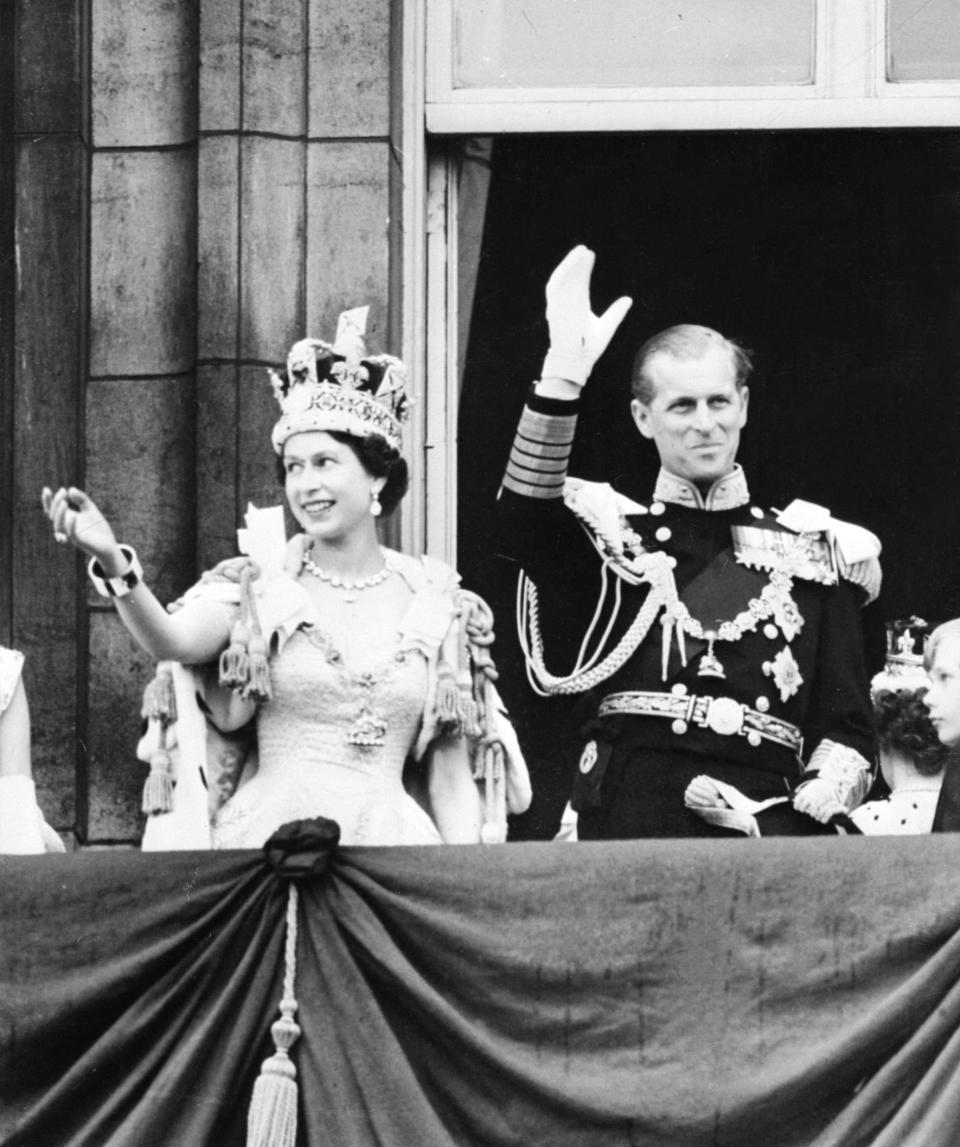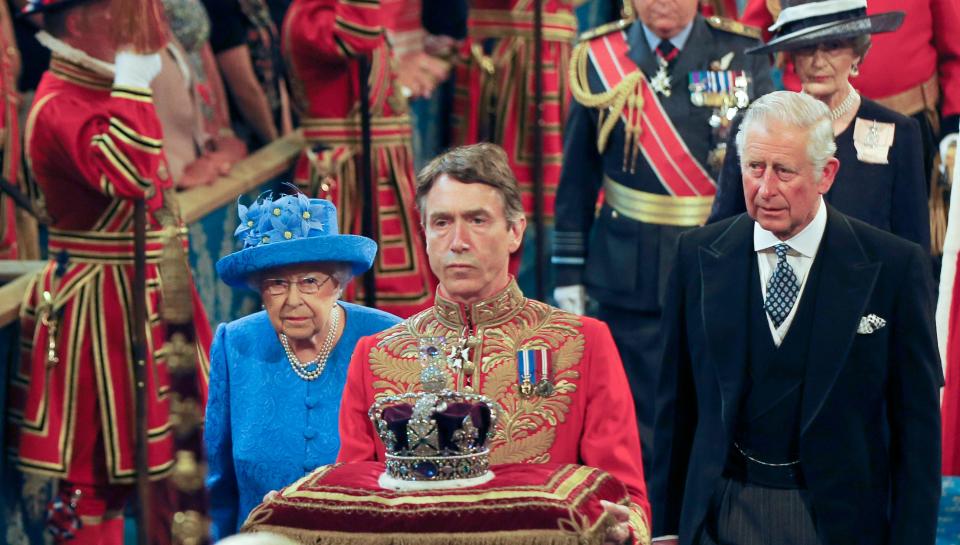Why are Americans so into Queen Elizabeth's Platinum Jubilee? This doesn't feel right.
- Oops!Something went wrong.Please try again later.
- Oops!Something went wrong.Please try again later.
A peculiar spectacle celebrating an elderly British woman seems to have enchanted a surprising number of my fellow Americans. Should we be a wee bit worried?
The Anglophiles among us have made no secret of their excitement about Queen Elizabeth II's Platinum Jubilee, which includes a lineup of grandiose events and an extra special four-day weekend, beginning Thursday, in the United Kingdom.
The whole glitzy shindig has been orchestrated to mark the 70th year of Elizabeth's reign. That milestone is a first for any British monarch in history. Great for the Brits, I suppose. But I'm not sure us Yanks have any business getting riled up about that mess. After all, we fought a bloody war so we could quit paying any mind to whoever had inherited the crown.
Allies since the Revolution
Yes, I know much has changed since the American Revolution. Elizabeth isn't to blame for the way her great-great-great-grandfather, King George III, treated American colonists in the latter half of the 18th century. And, yes, I recognize how World War II galvanized the special relationship that has come to define our modern era of cross-the-pond relations. For the entirety of her reign, Elizabeth has been a staunch American ally.
'Praying for myself too': Parents struggle with goodbye after another school shooting
The closeness of British-American cooperation is unmistakable – it's even reflected in my own family's home movies. A silent, flickering black-and-white scene that my grandfather recorded in his early 20s shows crowds watching a parade that included one especially ornate horse-drawn carriage.
My father, who converted the 8 mm film into digital video, said it came from a full-scale rehearsal before Elizabeth's ceremonial coronation in 1953. (By then, she had already been the queen for more than a year.)

My grandfather had recorded the clips while he was stationed with the U.S. Air Force at the United Kingdom's Royal Air Force station at Mildenhall. He was there at a major moment in British history during a key period in our transatlantic partnership. I, for one, am glad that partnership has held strong.
I swear I'm not Anglophobic
Look, I harbor no animosity for the U.K. or its people. My beef isn't even with the queen herself. Let Liz celebrate her 96th birthday again this month, even though she already did that back in April. Let her have her gaudy parties. I guess the jubilation is just fine and yankee-doodle-dandy with me.
Johnny Depp and Amber Heard: That trial reduced all of us with the disgusting display
But what makes me a bit uncomfy is the idea that Americans might have lost the plot.
Members of the royal family could seem at times like characters in our fairy tales or personalities on our reality TV shows. Their personal lives may even involve real Hollywood celebs. But pretending that British royals are mere entertainers is a mistake with troubling implications.
They are participants in a powerful political system that operates in the real world.

The crown is a heavy burden, even for a figurehead like the British monarch. It represents more than a thousand years of history and tradition – all that stuff about global empire and colonization comes with a lot of baggage.
Again, the current queen is not personally liable for the bad acts of the sovereigns who preceded her. Celebrating her birthday and her reign isn't the same as exalting every bit of conquest and oppression inflicted throughout British history.
Columnist Rex Huppke: Chicago has a gun problem, but there is no parallel to Texas
At the same time, I'm not sure this jubilee is fully separable from antiquated ideas about who should be governing whom. Why should we celebrate the fact that one person has ruled without interruption for 70 years? And is a constitutional monarchy truly compatible with our democratic ideals?
Just promise me one thing
Plenty before me have suggested the sun should set on the British monarchy. Whether that happens in my lifetime will have no impact on me personally, so I'm more than happy to leave that up to the British to decide.
Meanwhile, back here at home, I hope we can focus on building and celebrating a future that looks less and less like our past – a future in which titles of nobility are meaningless and the idea of a permanent ruling class offends our conception of participatory democracy.
Why are Republicans angry? Progressives are good at poking the elephant.
I don't really fault my compatriots who see royal celebrations as a source of escapist entertainment. We all need to catch our breath from time to time. There are far worse ways to unwind.
All I ask is that, after this weekend's pageantry, we resume the work of perfecting our union. It won't be easy. And it won't be finished in our lifetimes. But we can make the revolution worthwhile.
Steven Porter is assistant editor for USA TODAY Opinion and a member of the editorial board. Follow him on Twitter: @reporterporter
You can read diverse opinions from our Board of Contributors and other writers on the Opinion front page, on Twitter @usatodayopinion and in our daily Opinion newsletter. To respond to a column, submit a comment to letters@usatoday.com.
This article originally appeared on USA TODAY: Queen's Platinum Jubilee a distraction I wish Americans would ignore

